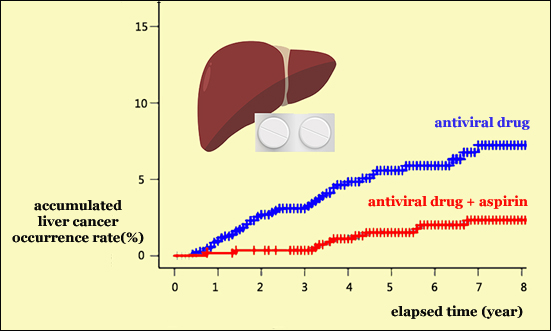Aspirin, an antiplatelet drug commonly used for high blood pressure, angina, and stroke patients, has proved to reduce the risk of liver cancer, according to a study by the Seoul National University Hospital.

A team led by Professor Lee Jung-hoon이정훈 of Seoul National University Hospitals (SNUH)서울대병원 Professor Lee Min-jong이민정 of Kangwon National University Hospital강원대병원 conducted a study on 1,674 chronic B hepatitis patients in ages 18-85 to find that aspirin does reduce the risk of liver cancer.
The research team compared 558 people taking aspirin versus 1,116 individuals who did not, over 13 years, the SNUH said.
During the research, 63 people, or 3.8 percent of the total 1,674 subjects, got liver cancer. Analysis showed the group taking antiplatelet drugs, including aspirin, had a lowered risk of liver cancer by 56 to 66 percent.

“This study provides evidence that aspirin can significantly reduce liver cancer, which is mostly caused by hepatitis B, as the most common type of cancer in our country,” said Prof. Lee, the SNUH professor.
Researchers proceeded with the large-scale study after observing aspirin blocked platelet functions and reduced infections in animals during clinical trials.
“The risk of bleeding from aspirin was low while more than half reduced the risk of liver cancer,” Lee added. “We anticipate that aspirin can be actively used to prevent liver cancer along with conventional antiviral therapy.”
Hepatitis B affects around 400 million people worldwide, with 1 million people dying each year from the disease. In Korea, around 13,000 people out of 1.4 million patients die from cirrhosis and liver cancer annually.
The results of the study were published recently in an online edition of Hepatology Impact Factor, the most influential liver-related journals.

